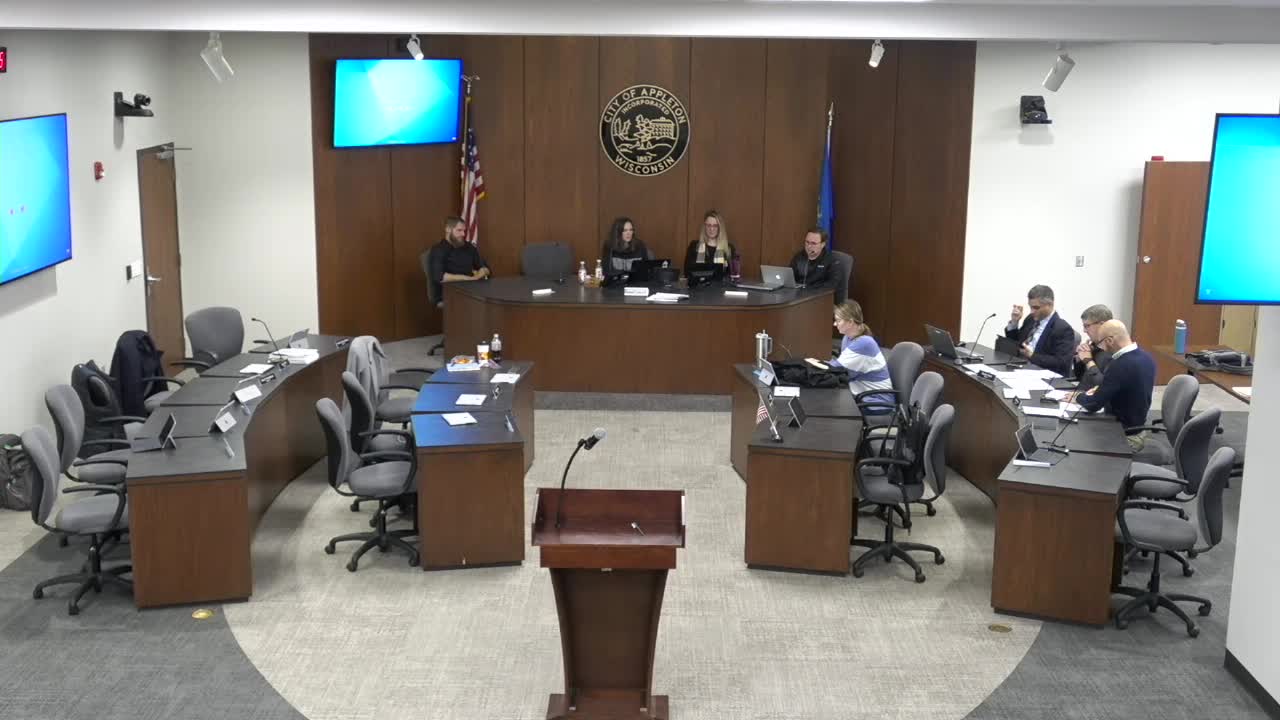IT director says 2026 budget jump tied to ERP module operational costs; highlights RingCentral, Meraki and new panic‑button system
Get AI-powered insights, summaries, and transcripts
Subscribe
Summary
Director Papp told the committee the 2026 IT budget rise mainly reflects ERP modules moving from project to operational costs, a new enterprise permitting module, RingCentral phone licensing, increased Meraki licensing for Ethernet switch replacements, an email-security appliance and a planned panic‑button system that alerts police radios.
Director Papp presented the Appleton City Information Technology department’s 2026 information‑item budget to the Human Resources and IT Committee on Oct. 22, describing what he called the largest year‑over‑year budget increase he has seen since joining the city and attributing most of it to enterprise resource planning (ERP) module costs moving from project funds into ongoing operational support.
Papp said three ERP modules went live in 2025—enterprise asset management, content management and the utility‑billing system—and that a new enterprise permitting and licensing module slated for 2026 is a substantial recurring cost. He noted the ERP software‑support line increases from $2.55 to $4.24 on the specific budget line presented; the staff presentation did not specify units for that line item in the transcript.
Papp described other 2025 accomplishments that affect 2026 costs: a citywide migration to a RingCentral phone system (which shifts some consulting and licensing costs into a new $85,000 software‑support line) and an Ethernet switch replacement that increases Cisco Meraki licensing fees. He said equipment repair and maintenance and some software‑support costs have risen to reflect cloud licensing and the new modules.
Papp also described a planned direct‑responder emergency (panic‑button) system for City Hall that will broadcast directly to police radios rather than routing through 911 or an external central station; he said the prior panic‑button system was retired because it was unreliable. On email security, Papp said the department upgraded an appliance (budgeted at about $70,000) that now bundles anti‑phishing campaigns, automated removal of reported malicious messages from user mailboxes, and a backup capability for the city’s Microsoft 365 (OneDrive/SharePoint) documents and mail. He said the retention horizon for those city backups is “to be determined” and that he would follow up with the system administrator on retention length.
Committee members asked about a sustained reduction in ticket volume. Alder Jones asked whether the drop was due to new technology; Papp attributed the decline to cloud services, tighter endpoint controls and multifactor authentication implemented after federal guidance in 2022, plus the transition from legacy systems to ERP that reduced incident and problem tickets while increasing service requests for dashboards and reports. Alder Hayden asked about the department’s use of IT service‑management best practices; Papp said he follows ITIL frameworks and distinguishes incidents, problems and requests accordingly.
Papp said consulting services declined as a line item in part because earlier consulting and licensing related to the old phone system have been replaced by RingCentral support costs, and he described the ERP-related sticker shock as concentrated in software‑support lines rather than hardware or staffing.
The IT budget was presented as an information item; no committee vote was taken on the budget at the Oct. 22 meeting.
